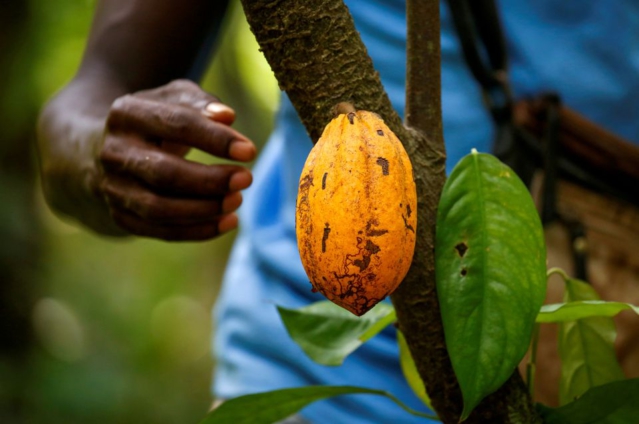
Audio By Carbonatix
Prolonged dry Harmattan conditions have compelled the Ghana Cocoa Board to suspend its planned handing over of thousands of newly rehabilitated cocoa farms, a source at the regulator has revealed to Cocoa Post.
In a speech read for the Chief Executive, Joseph Boahen Aidoo, in February, the board announced its intention to deliver some 19,627 rehabilitated cocoa farms covering an area of 18,110.94 hectares to the beneficiary cocoa farmers.
However, according to the source, due to the telling effect of the prevailing Harmattan condition on some of the farms, the board would temporarily withhold the handover until further notice.
Many farms have seen cocoa seedlings and young trees succumb to the prolonged dry weather of the Harmattan season.
The Harmattan is a dry, dusty wind that blows from the Sahara desert to the Gulf of Guinea and the West African coast. Its impact is strongest from late November to mid-March.
According to the source, the board plans to carry out a final round of maintenance weeding on farms earmarked for handover from next month through May.
"That will also allow us to undertake refilling of those farms with disease-resistant hybrid cocoa seedlings where necessary," the official indicated.
The contact further explained that handing over rehabilitated farms with the full complement of 1100 cocoa trees is the ideal situation.
However, they said there is always room for continuous seedling refilling, a situation that pertains even to older farms.
Reacting to Cocoa Post's recent article on some farmers' unreadiness to take over management of their rehabilitated farms, the Cocobod insider assured the beneficiary farmers of continuous technical support to ensure their farms flourish.
So far, Cocobod says it has successfully rehabilitated some 67,385.43 hectares out of 156,400 hectares of CSSVD outbreak farms targeted for the National Cocoa Rehabilitation Programme.
The programme remains one of the largest interventions in Ghana's cocoa sector, and it is hoped to rejuvenate the country's diseased and unproductive cocoa tree stock.
In a Cocoa Post feature published last month, it was revealed that more than 590,000 hectares of Ghana's cocoa farms have been infected by the deadly Cocoa Swollen Shoot Virus Disease (CSSVD).
According to the Cocoa Research Institute of Ghana (CRIG), CSSVD-infected trees will experience a yield reduction in the first two years and die by the third year.
The West African country, currently the world's second-largest cocoa producer, faces an unprecedented decline in annual crop production, feeding into a global scarcity and driving record prices.
Latest Stories
-
The foundation is laid; now we accelerate and expand in 2026 – Mahama
8 minutes -
There is no NPP, CPP nor NDC Ghana, only one Ghana – Mahama
10 minutes -
Eduwatch praises education financing gains but warns delays, teacher gaps could derail reforms
23 minutes -
Kusaal Wikimedians take local language online in 14-day digital campaign
1 hour -
Stop interfering in each other’s roles – Bole-Bamboi MP appeals to traditional rulers for peace
1 hour -
Playback: President Mahama addressed the nation in New Year message
2 hours -
Industrial and Commercial Workers’ Union call for strong work ethics, economic participation in 2026 new year message
4 hours -
Crossover Joy: Churches in Ghana welcome 2026 with fire and faith
4 hours -
Traffic chaos on Accra–Kumasi Highway leaves hundreds stranded as diversions gridlock
4 hours -
Luv FM Family Party in the Park: Hundreds of families flock to Luv FM family party as more join the queue in excitement
4 hours -
Failure to resolve galamsey menace could send gov’t to opposition – Dr Asah-Asante warns
4 hours -
Leadership Lunch & Learn December edition empowers women leaders with practical insights
4 hours -
12 of the best TV shows to watch this January
5 hours -
All-inclusive Luv FM Family Party underway with colour, music, and laughter as families troop in to Rattray Park
5 hours -
Jospong Group CEO, wife support over 5,000 Ghanaians with food, cash on New Year’s Day
6 hours

